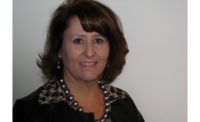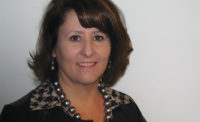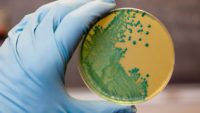What makes a plant safe? Is it the quality control checkpoints, the audits or mock recalls, or the number of stringent safety processes in place? Is it the fact that they practice worker safety or just produce safe food?
Whatever the reason, more and more refrigerated and frozen food processors are working to become certified in just about every food safety arena possible.
Here’s a look at how some processors are practicing safety first.
Implementing a systematic approach
Worker health and safety is a top priority for Butterball, LLC. That’s why the Garner, N.C., producer of turkey products strives to “integrate stringent safety processes in day-to-day business practices across all of our facility locations,” says Brian Rodgers, corporate director of safety and risk management.
It does so by adhering to a set of standards developed by OSHA’s Voluntary Protection Program (OSHA VPP), in addition to its own internal safety management system—The Butterball Safety Process (BSP).
As a result, Butterball achieved 7 million hours without a lost-time injury at its Huntsville, Ark., plant, or five years without a work-related injury or illness by the facility’s 630 employees, Rodgers says. “The implementation of BSP has worked well for Butterball,” he adds. “It’s our systematic approach to safety management that aids in streamlining efforts and resources to prevent work-related injuries.”
Butterball’s BSP builds upon five core values:
1) Occupational health and safety can be managed;
2) Nothing they do is worth getting hurt;
3) Every injury/illness could and should have been prevented;
4) Personal accountability for safety performance is a condition of employment, and,
5) Occupational health and safety is everyone’s responsibility.
In addition to BSP, Butterball constructed a proprietary safety auditing system that acts as an autopsy for each facility. This audit is comprised of more than 400 questions and covers 35 subject areas, ranging from ergonomics, equipment safeguarding, fall protection, process safety management, management commitment and training to contractor safety, personal protective equipment, safety and health management, occupational health, hazard prevention and control, etc., Rodgers says. “We continually work to aggressively expand and improve our robust ergonomic program, emphasizing wellness programs and implementing utilization of process automation where possible,” he adds.
Fearless leaders in developing rigorous protocols
Leafy greens have been in the spotlight as a source of foodborne illness outbreaks, according to Will Daniels, senior vice president, operations and organic integrity for Earthbound Farm.
In fact, the San Juan Bautista, Calif., company was at the center of the 2006 spinach outbreak.
“Motivated by our commitment to produce the healthiest food possible, Earthbound Farm set out to overturn accepted orthodoxy about food safety in fresh-cut salads, where no kill-step exists,” Daniels says. “We knew that in order to improve safety, we’d need to implement a multi-hurdle program.”
That’s why within two weeks of the recall, Earthbound Farm launched a food safety program that starts in the field, even before planting.
“Raw product is sequestered into lots, all of which are tested for pathogens of public health concern (e. coli O157:H7, non-O157 EHECs, Salmonella, Shigella) with PCR testing,” Daniels says. “All lots are held until test results release them; any lots that test positive are destroyed. A few months following, we launched the same protocol for finished goods. The goal of this program is to radically improve the safety of fresh-cut salad and other ready-to-eat produce.”
Additionally, the rapid PCR testing produces results within 12-16 hours, allowing Earthbound Farm to gather valuable data points and learn about how the pathogens behave in real time. This way, “if we get a raw product positive, we can be back at the field it came from within 24 hours of harvest,” Daniels says.
Today, Earthbound Farm destroys about 3,000 of 2 million pounds of salad a week because of positive results.
It’s the motivation to produce the healthiest food possible that garnered Earthbound Farm with the NSF International Food Safety Leadership Award, presented by NSF International, Ann Arbor, Mich.
“It would be great if there were a one-size-fits-all solution to food safety, but there isn’t,” Daniels says. “The critical factor in developing rigorous food safety protocols is that manufacturers have to be willing to do a fearless evaluation of their systems and identify where the risks lie, how significant the risks are and how they can best mitigate those risks. And then you have to keep doing it. Things change and you have to be certain that your program is changing to keep up and maintain the level of food safety you need.”
Best aquaculture practices
Rich Products Corp.’s Brownsville, Texas, plant received a “Best Aquaculture Practices” certification. This facility produces a large majority of Rich’s seafood products distributed by SeaPak Shrimp & Seafood Co., maker of frozen specialty shrimp and seafood products.
The BAP certification standards are developed by the Global Aquaculture Alliance (GAA), a non-profit, non-governmental organization that encourages the use of responsible aquaculture practices. While the certification program is voluntary for aquaculture facilities, the BAP standards are among the most comprehensive certification systems.
“As a founding member of the Global Aquaculture Alliance, sustainability has always been a top priority at SeaPak,” says Daryl Miller, senior marketing manager for Rich Products. “This is the most prestigious type of plant certification in the industry. It validates the excellence in best processing and production practices at our Brownsville plant and bolsters SeaPak’s leadership role as America’s trusted source for premium seafood products.”
Currently, 100% of SeaPak’s aquaculture products come from BAP-certified sources and are made using Best Aquaculture Practices.
“Our Brownsville plant produces 85% of our seafood items, so we take great pride in this certification,” says Eddie De La Rosa, plant manager for Rich’s Brownsville manufacturing facility. “It’s wonderful to be recognized by the seafood industry’s leading aquaculture certification program for the things we do to provide safe, high-quality seafood.”





